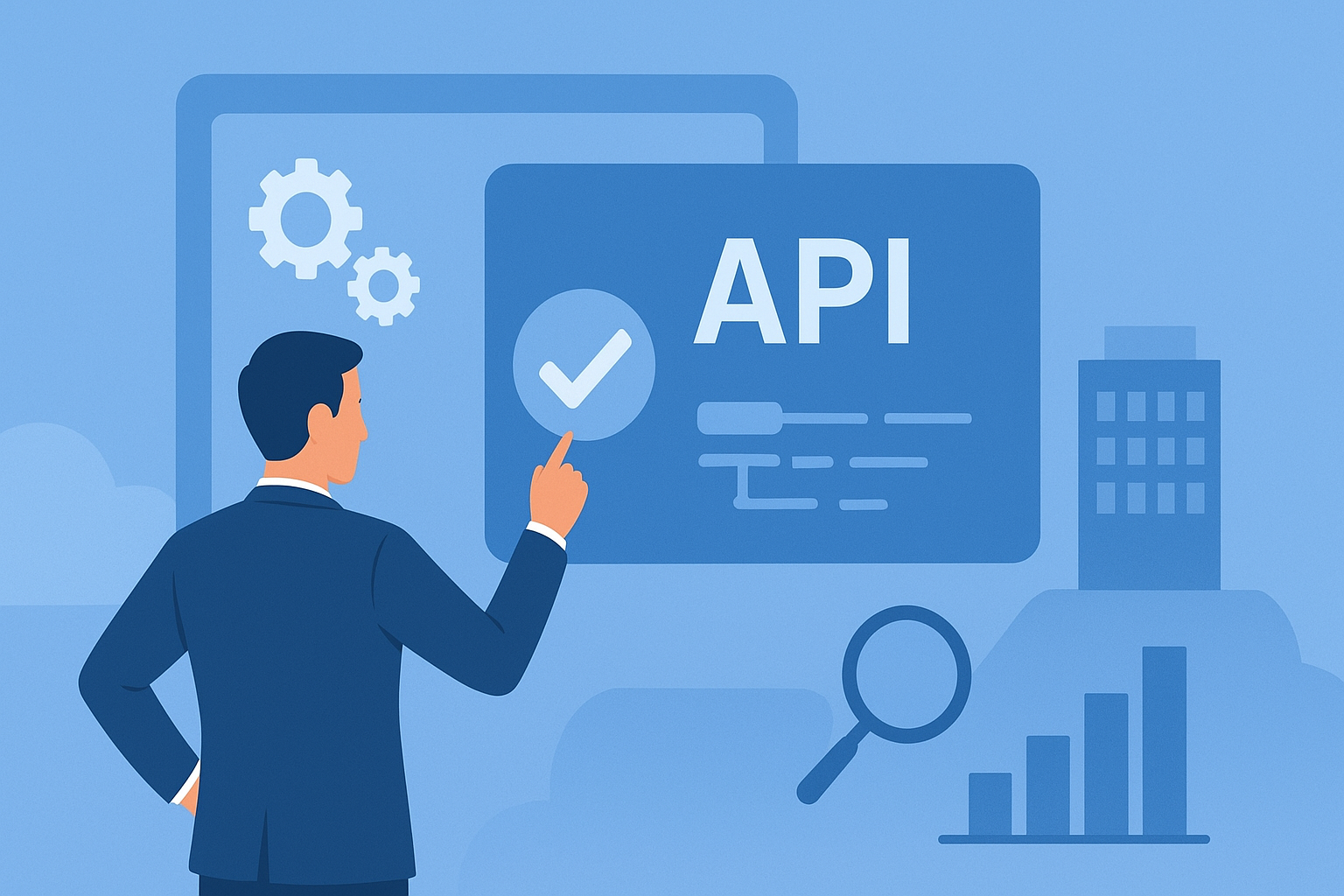
API Integration in 2025: How to Choose the Right Company for Your Business Needs
The landscape of business technology continues to evolve rapidly, with up to 70% of enterprises expected to rely on cloud-based integration solutions by 2025. This shift toward interconnected systems has made API integration a critical component of modern business operations. Yet many organizations struggle to identify the right API integration company that can handle their specific requirements while delivering measurable results.
At Product Siddha, we set up lean, automated systems so your product and marketing run smoothly. Our experience working with diverse enterprise clients has revealed the key factors that separate successful API integration partnerships from costly implementations that fail to meet business objectives.
The challenge lies not just in connecting systems but in creating integrations that scale, remain secure, and adapt to changing business needs. Here is a comprehensive guide to selecting an API integration company that aligns with your 2025 business strategy.
Understanding the Current API Integration Landscape
API-first development will be essential for businesses operating in dynamic markets where scalability is a key competitive advantage. The integration services market reflects this trend, with the global Enterprise Application Integration market expected to reach $42.45 billion by 2029 at 16.5% growth.
This growth indicates both opportunity and complexity. More providers enter the market each year, but not all possess the expertise needed for enterprise-grade implementations. Organizations must evaluate potential partners based on proven capabilities rather than marketing promises.
Key Market Drivers in 2025:
| Driver | Impact on Integration Strategy | Business Implication |
|---|---|---|
| Cloud-first Architecture | 70% adoption rate | Hybrid integration requirements |
| Microservices Growth | Modular system design | Complex orchestration needs |
| AI Integration | Enhanced automation | Advanced processing capabilities |
| Security Regulations | Zero Trust models | Comprehensive compliance requirements |
The companies that succeed in this environment combine technical expertise with a deep understanding of business processes and industry-specific requirements.
Essential Capabilities Your API Integration Company Must Have
Proven Experience with Your Technology Stack
Look for an API integration company that demonstrates concrete experience with your existing technology environment. Generic integration experience rarely translates well to specific platform combinations or industry requirements.
Ask potential partners to provide detailed case studies showing similar implementations. Request references from clients using comparable technology stacks. This verification process reveals whether the company understands the nuances of your particular integration challenges.
Security-First Approach to Integration Architecture
New security standards and protocols specifically tailored for APIs will likely focus on enhancing authentication mechanisms, improving data encryption and standardizing API security best practices. Your integration partner must understand these evolving security requirements.
Evaluate their approach to authentication, data encryption, and access control. Examine their experience with compliance requirements relevant to your industry. Review their incident response procedures and ongoing monitoring capabilities.
Security Evaluation Framework:
- Authentication and authorization mechanisms
- Data encryption at rest and in transit
- API gateway security features
- Compliance certification and auditing
- Incident response and monitoring procedures
Scalability Planning and Performance Optimization
Businesses leveraging API-first design are delivering features 40% faster than traditional models. However, speed means nothing without the ability to handle growth in data volume, user load, and system complexity.
Your chosen API integration company should provide detailed scalability assessments and performance benchmarks. They should explain how their solutions handle increased load, peak traffic periods, and system expansion requirements.
Evaluation Criteria for API Integration Companies
Technical Competency Assessment
Beyond basic technical skills, evaluate the company’s ability to handle complex integration scenarios. Request detailed technical proposals that address your specific requirements rather than generic solutions.
Look for expertise in multiple integration patterns including point-to-point connections, hub-and-spoke architectures, and event-driven integrations. Assess their knowledge of modern integration technologies such as message queues, API gateways, and container orchestration.
Project Management and Communication Practices
Successful API integration projects require careful coordination between technical teams, business stakeholders, and external vendors. Evaluate potential partners based on their project management methodologies and communication practices.
Ask about their approach to requirement gathering, progress reporting, and change management. Review their documentation standards and knowledge transfer procedures. Strong integration companies provide clear project timelines with realistic milestones and regular status updates.
Post-Implementation Support and Maintenance
API integrations require ongoing maintenance, monitoring, and optimization. Your integration partner should provide comprehensive support services that extend beyond initial implementation.
Support Service Categories:
Ongoing Support Structure
├── Technical Monitoring
│ ├── Performance Metrics
│ ├── Error Detection
│ └── System Health Checks
├── Maintenance Services
│ ├── Security Updates
│ ├── Platform Upgrades
│ └── Configuration Changes
└── Enhancement Support
├── Feature Additions
├── Scaling Adjustments
└── Optimization Improvements
Evaluate their monitoring capabilities, response times for critical issues, and procedures for handling platform updates or changes.
Industry-Specific Considerations
Different industries have unique integration requirements based on regulatory compliance, data sensitivity, and operational workflows. Choose an API integration company with demonstrated experience in your specific sector.
Healthcare organizations need partners who understand HIPAA compliance and patient data protection requirements. Financial services companies require expertise in PCI DSS standards and fraud detection systems. Manufacturing businesses need integration specialists familiar with supply chain management and inventory tracking systems.
Ask potential partners about their industry certifications, compliance expertise, and relevant case studies. Generic integration experience rarely addresses the specific challenges and requirements of specialized industries.
Cost Structure and Value Assessment
API integration projects vary significantly in complexity and cost. Avoid companies that provide generic pricing without understanding your specific requirements. Look for transparent pricing models that align costs with delivered value.
Cost Evaluation Framework:
| Cost Component | Evaluation Criteria | Questions to Ask |
|---|---|---|
| Initial Development | Fixed vs. time-based pricing | What is included in base cost? |
| Integration Complexity | Per-connection or flat fee | How are complex integrations priced? |
| Ongoing Maintenance | Monthly or annual contracts | What support services are included? |
| Additional Services | Training, documentation | What additional costs might arise? |
Request detailed proposals that break down costs by project phase and deliverable. Compare total cost of ownership rather than just initial implementation fees.
Red Flags to Avoid When Selecting Partners
Several warning signs indicate potential problems with API integration companies. Avoid partners who cannot provide specific references, detailed technical proposals, or clear project timelines.
Be cautious of companies that promise unrealistic implementation timeframes or guarantee perfect compatibility without thorough requirements analysis. Integration projects involve inherent complexities that reputable companies acknowledge upfront.
Watch for partners who focus primarily on technology features rather than business outcomes. The best API integration companies understand that successful integrations solve specific business problems rather than simply connecting systems.
Product Siddha’s Approach to API Integration Excellence
At Product Siddha, we improve your business with smart AI automation, clear product data, strong product planning, and easy-to-use marketing tools. Our API integration methodology focuses on creating sustainable, scalable solutions that grow with your business.
We begin every project with a comprehensive business requirements analysis rather than jumping directly to technical implementation. This approach ensures that integration solutions address actual business needs while remaining flexible enough to accommodate future changes.
Our team combines deep technical expertise with practical business experience across multiple industries. We understand that successful API integration requires more than just connecting systems – it requires creating cohesive workflows that improve operational efficiency and enable business growth.
Making Your Final Selection Decision
Choose an API integration company based on demonstrated expertise, clear communication, and alignment with your business objectives. The lowest-cost option rarely delivers the best value, while the most expensive provider may not offer capabilities that justify premium pricing.
Focus on partners who ask detailed questions about your business processes, current challenges, and future growth plans. The best integration companies treat each project as a unique business problem rather than a generic technical task.
Request proof-of-concept demonstrations for critical integration points. This approach reveals how well potential partners understand your requirements and their ability to deliver working solutions.
Most importantly, select a partner who can grow with your business. API integration needs evolve as companies expand, add new systems, and adapt to changing market conditions. Choose a company positioned to support your long-term integration strategy rather than just immediate technical requirements.
The right API integration company, Product Siddha, becomes a strategic partner in your digital transformation journey, enabling business agility and competitive advantage through well-designed, secure, and scalable integration solutions.
